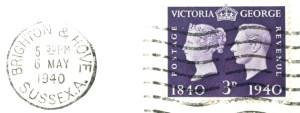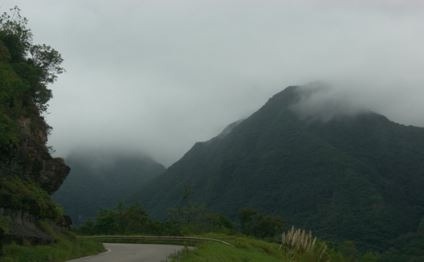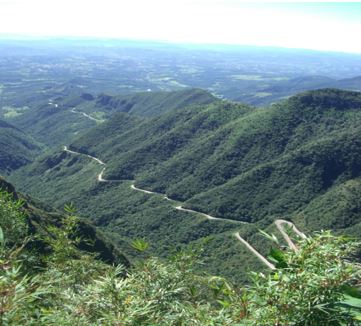It’s remarkable how early the celebration of the Christian festival Easter is this year. Unlike a fixed date say of Christmas, the date of Christ’s crucifixion and subsequent resurrection is moveable, linked to the lunar rather than solar cycle, and can occur sometime between March 22rd and April 25th. Even after reading some of the interpretations of Old and New Testament scripts concerning the date of the crucifixion, I still find it strange that it can vary by over a month. The resurrection was supposedly ‘on the 3rd day’, so they must count the day of the crucifixion as the first, otherwise we would celebrate it on Monday! And of course this is using the Gregorian calendar, which in the C21st is 13 days earlier than the Julian calendar used by Eastern and Orthodox Christians. This year The Archbishop of Canterbury announced that there are ongoing discussions between the Protestant, Catholic and Orthodox communities to fix the date, possibly as 19th April – but not for 5 years or so.
Growing up I remember, or was told as a two year old’s memory is not reliable, that my parents had placed some chocolate Easter eggs on my bed. I had woken, found them, eaten them, and when my mother came in she found me covered in chocolate. Of course!
My mother and step-father lived in a small village in Sussex and went to the local Church of England C12th Saxon church every Sunday. At some stage the vicar discovered that they were confirmed in the Church of Scotland and so it was, on Easter Sunday, to take communion, we all travelled up to London to St Columba’s Church in Pont Street. Although we had driven the roads many times, I do remember a moment of confusion in 1962 when we reached a particular T-junction: “Left or Right?” Ahead of us was a poster advertising a Bob Hope film – “The Road to Hong Kong” and so the inevitable comment was made from the back seat – ‘if you go straight on we’ll go to Hong Kong’. (We probably thought this a preferable option!!)
Before the communion, those who were not confirmed left the church. My brother and I would go and find some Sunday papers and read those in the car, before we were joined by our parents and driven off to lunch at Lyon’s Corner House at Marble Arch.
So for many people, Easter is about religion, marking the death and resurrection of Jesus. For others, it’s about Easter eggs, of bunnies, and overdosing on chocolate. I read that this year in the UK it’s also all about eggshell wreaths, bunny string lights and stylish Easter trees; the sending of Easter cards has made a comeback. God Help Us! Incidentally the ‘egg’ association started in the C13th, as a representation of new life.
This year the Easter weekend has been used to mark the centenary of the Easter Rising in Dublin. This had nothing to do with Simnel cakes, hot cross buns and the like, but an attempt by seven fervent Irish nationalists to form a new nation, independent from London. The rebellion was over in a week, and the ‘rebels’ executed, but it hastened the creation of the Irish Free State in 1922, known as the Republic of Ireland from 1937. The Easter Rising was, according to a recent book about the seven nationalist, ‘a catastrophe that poisoned Irish veins with the toxin of political violence’. One sixth of the island of Ireland remains part of the United Kingdom and is known as Northern Island. That ‘toxin’ encouraged a thirty year terrorist campaign by the IRA to force the UK to end its governance of Northern Ireland. It ended in 1998 but fringe groups continue their misguided criminal activity. The actual date of the Easter Rising is 24th April 1916, but as Easter is so early this year ……!!
But for me, the abiding memory associated with Easter is completing the canoe race from Devizes, 125 miles west of London, to Westminster; the ‘DW’. You might not think of me as a roughie toughie canoeist, and you’d be correct; I’m not and wasn’t! On commissioning, I was posted to an artillery regiment in Devizes, Wiltshire. I duly wrote to the Commanding Officer, as required, expressing my enormous pleasure in joining his regiment. I was also required to say a little about myself; after mentioning playing rugby and a love of art, I was scrambling around to fill the page. Stupidly, I said I loved canoeing, having spent a couple of lazy sunny Sundays on the lake at the military academy, complete with female companion and bottle of bubbly. I never made the connection – that Devizes was the start of the DW Canoe Race. Volunteered in true military fashion, ie “Yates! We’ve entered a team of three two-man canoes in the DW. You’re in charge!”, I found myself on Good Friday morning 1968 on the Kennet & Avon canal, ready for the off. I won’t bore you with the details, as it’s immensely tedious to paddle 125 miles. The first 53 miles are on the canal, before one joins the River Thames. On the canal stretch, at every one of the 77 locks, you had to get out, carry the canoe around the lock, get back in and start paddling again. Some parts of the canal had no water and you just had to carry the bloody thing! The Thames becomes tidal, and consequently very choppy, after another 55 miles; those last 17 miles are “just mind-numbing” says Sir Ranulph Fiennes the British explorer. Indeed, many teams fail on this last 17-mile stretch. Suffice to say my crewman became sick, another team canoe struck something and developed a leak, and in the end it was just one canoe, mine, with a different crewman, paddling into London, against the coldest wind imaginable. Someone gave me a cup of tea – I dropped it, so exhausted, so wet, so frozen.
The winner that year came in in about 25 hours; we were not in racing canoes and took considerably longer. But we finished and I have the certificate to prove it, although as we had changed crew, we weren’t given a ‘place’ but simple recognition we had completed what has been described as the Mount Everest of canoe races. The former Liberal Democrat politician Lord Ashdown also completed it as a young Royal Marines commando, famously commenting afterwards that he could think of only one person who’d had a worse Easter than him!
So, some thoughts at Easter in 2016
Richard 28th March 2016 richardyates24@gmail.com




